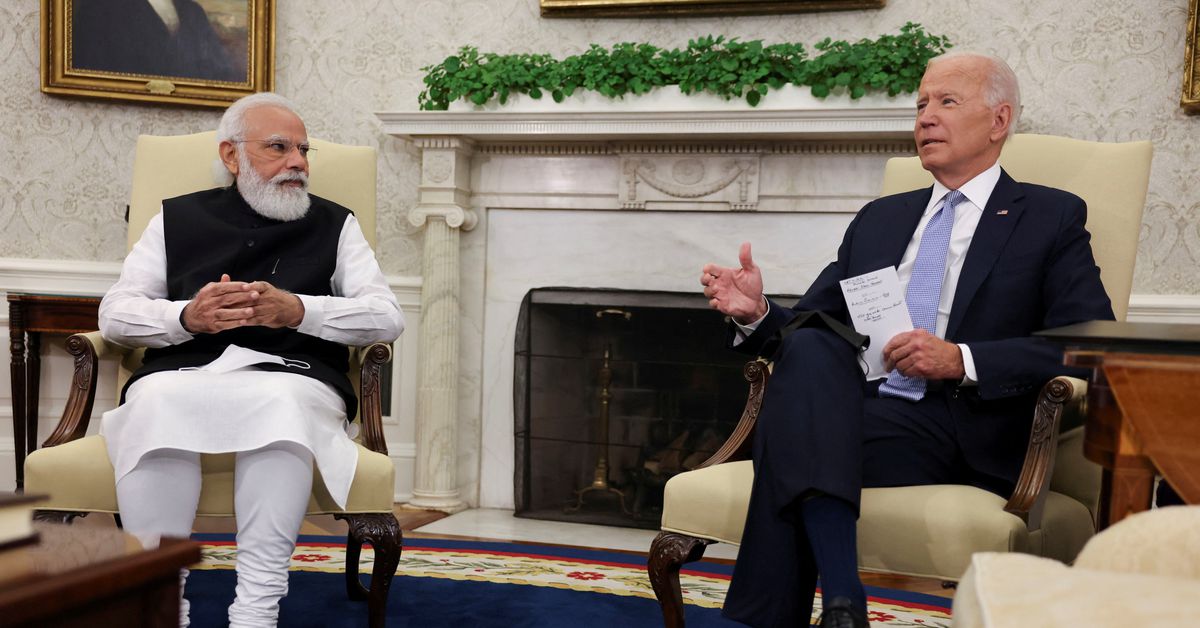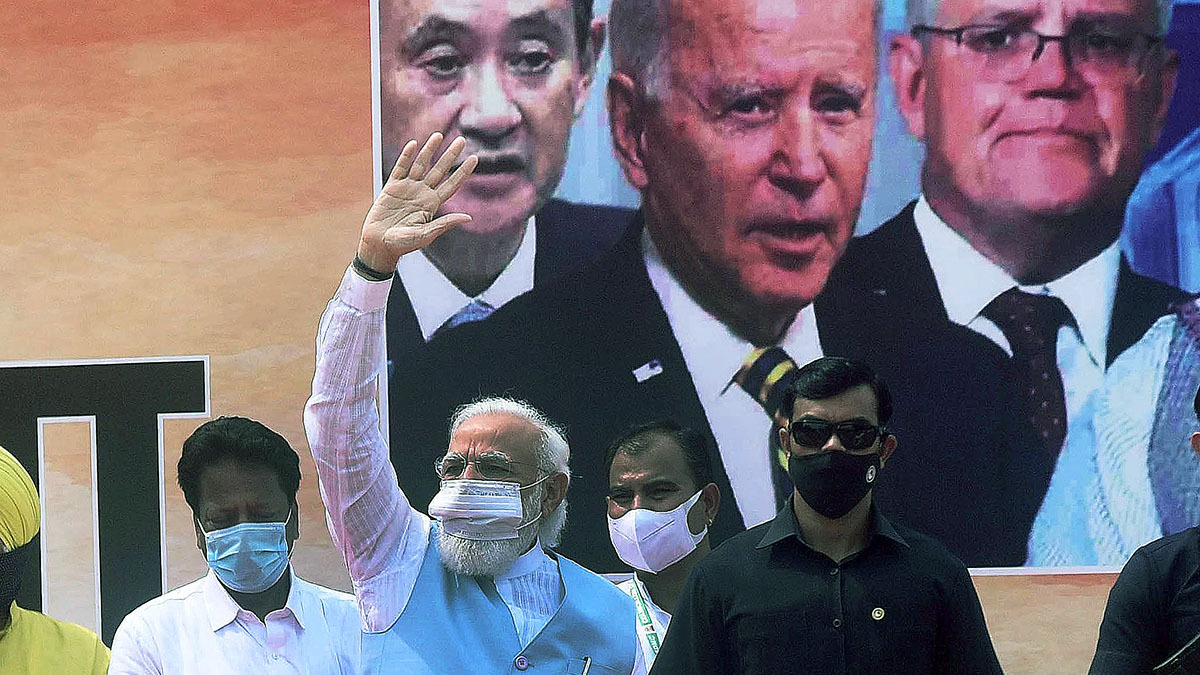Modi’s U.S. Trip: Anti-China Agenda
Indian Prime Minister Narendra Modi arrived in the United States on September 22 for his sixth visit since assuming office in May 2014. Modi is scheduled to hold his first face-to-face bilateral meeting with U.S. President Joe Biden on September 24.
Modi’s Anti-China Agenda

Modi’s U.S. visit is viewed as an opportunity for India to further cement its strategic ties with the U.S. and discuss ways to counter China’s growing influence in the region. In recent years, India has increasingly aligned itself with the U.S. in response to China’s aggressive expansionism in the Indo-Pacific.
Bilateral Meetings
Modi and Biden are expected to discuss a range of issues during their bilateral meeting, including the Covid-19 pandemic, climate change, and regional security. But China is expected to dominate the agenda, with the two leaders discussing ways to counter the growing Chinese influence in the region.
Quad Summit
The Indian prime minister is also scheduled to meet with the leaders of Japan and Australia on September 24 for the first-ever Quad Summit. The virtual summit represents a significant milestone in the development of the Quadrilateral Security Dialogue, a strategic forum comprising the U.S., India, Japan, and Australia aimed at countering China’s growing influence in the Indo-Pacific region.
High-Level Meetings
Modi is also expected to hold a series of high-level meetings with top U.S. officials, including Vice President Kamala Harris, Secretary of State Antony Blinken, and Defense Secretary Lloyd Austin. These meetings are expected to focus on strengthening bilateral trade and investment ties, as well as enhancing strategic and security cooperation to counter China’s influence in the region.
India’s Strategic Ties with the U.S.
Modi’s visit to the U.S. comes at a time when India is increasingly looking to align itself with the U.S. to counter China’s influence in the Indo-Pacific. Over the past few years, the U.S. and India have signed several key defense agreements, including the Basic Exchange and Cooperation Agreement (BECA) and the Logistics Exchange Memorandum of Agreement (LEMOA), aimed at bolstering defense cooperation and interoperability.
A Changing Dynamic
The U.S. and India’s strategic ties are closely watched by China, which views the partnership as a direct challenge to its growing influence in the region. However, the dynamic between the three countries has been shifting in recent years, with China and India engaged in their own border disputes.
The Bottom Line

Modi’s U.S. visit is an opportunity for India to deepen its strategic ties with the U.S. and discuss ways to counter China’s growing influence in the region. The visit comes at a time when the U.S. and India’s strategic ties are evolving, with both countries seeking to cooperate on key defense, security, and economic issues.
FAQ

Q: What is the purpose of Modi’s U.S. Trip?
A: Modi’s visit to the U.S. is an opportunity for India to deepen its strategic ties with the U.S. and discuss ways to counter China’s growing influence in the region.
Q: What is the Quad Summit?
A: The Quad Summit is a virtual summit of the leaders of the U.S., India, Japan, and Australia aimed at countering China’s growing influence in the Indo-Pacific region.
Q: What are the key defense agreements between the U.S. and India?
A: The Basic Exchange and Cooperation Agreement (BECA) and the Logistics Exchange Memorandum of Agreement (LEMOA) are key defense agreements between the U.S. and India aimed at bolstering defense cooperation and interoperability.
Q: How is China viewing the U.S. and India’s strategic ties?
A: China views the strategic partnership between the U.S. and India as a direct challenge to its growing influence in the region.
Q: How is the dynamic between the U.S., India, and China shifting?
A: The dynamic between the three countries has been shifting in recent years, with China and India engaged in their own border disputes.

